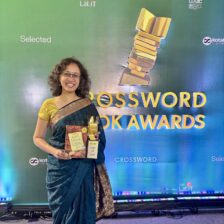Have you heard of Luwak coffee? I had heard of it before visiting Bali, but hadn’t yet made the connection between two.
Luwak coffee is the most expensive coffee in the world and is euphemistically described as ‘part-digested’. Honey is pre-digested too, isn’t it, so why should coffee be so different? I won’t get into the details here, but you can read about it on Wikipedia, if you’re curious. Let’s just say that the process of making it, plus how much it cost, prevented me from tasting it. Additionally, with such a huge variety of coffees to taste, I honestly did not want to try yet another!

Visiting a coffee plantation is lovely because they allow you a free taste of an array of coffees – mangosteen, turmeric, lemongrass … The coffee you have to pay for, though, is Luwak.
The coffee was yummy, but of course, stories always excite me more. It was at the coffee plantation that we first noticed the kulkul.

“What’s that?” we asked.
Our guide Nyoman took a stick out of the bell and hit it once. “It is a kulkul – a wooden bell usually made of bamboo. In a plantation, it is to draw the attention of the workers. In other places, it can be used by the whole community to remind you about a function or call people together or for an emergency. If I hit it three times, it means white people are coming.” He looked at us and quickly amended, “That is, tourists are coming.” He smiled a little apologetically and then continued, “But in an emergency, we hit it many times, very fast, and people run out of their homes, leaving whatever they are doing. It means there is an earthquake or a fire or something.”
Just before we entered the restaurant area of the plantation, the waitress hit the bell twice. What did that mean, I wonder. Brown people are coming, but they are tourists too?

Leave a Reply